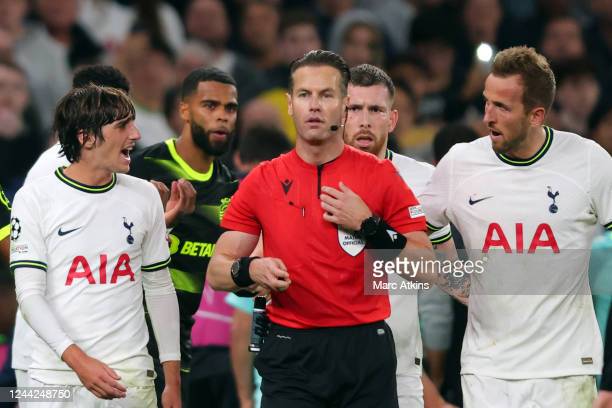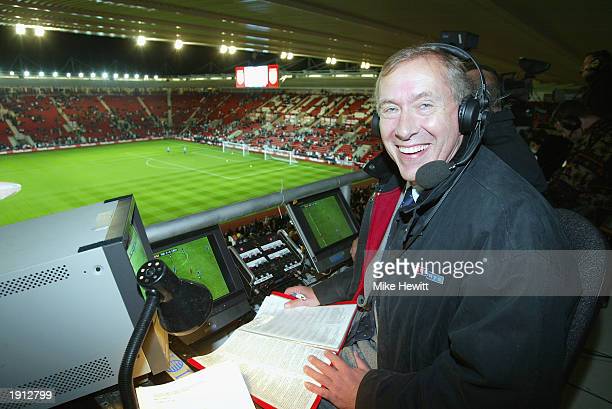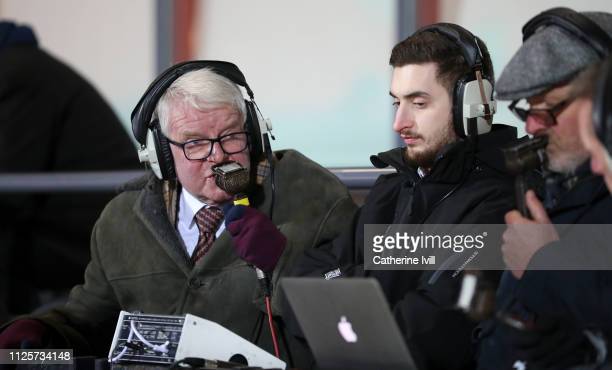Am I biased? Probably.
Is live football commentary essential? Most definitely.
If you haven’t seen this week, Guardian sports writer Jonathan Liew wrote a piece against football commentary and commentators.
He argues in the piece that perhaps it is time to let football ‘do the talking’ and that commentators for too long have been wrestling for a place in the ‘attention economy’.
The reason why I think this is so wrong is because it is symptomatic of something far greater in football, and something which has been brewing for a number of years.
It all comes down to a philosophical question of what football really is at its roots. Perhaps it even touches into the meaning of life, but that is something which I won’t attempt to address in this VAVEL article.
Football is inherently a human experience. It’s a social entity, an escape from the mundane world where the black and white absolutism rules over most of us.
And in the past few years, we’ve seen football becoming less and less about the human experience. I’ll get onto VAR shortly (sorry), but we seem to be forgetting why football is so important as a concept.
Whilst of course some statistic maniacs out there will obsess over xG, heat maps and pass completion rates, the vast majority of people who follow, support and watch football do so for the emotive side of the game.
Having a commentator narrate and contextualise the game brings it back to the human form. It builds the story around the game, and that’s why so many find football enthralling.
In the piece Liew suggests that ‘augmented reality’ can identify the players instead and asks ‘what purpose does the human serve’.
I really like Jonathan Liew. I think he’s one of the best sports writers around. But if he’s asking what purpose the human serves in live commentary, surely the same could be asked about himself?
His ideas are yet a further step towards a dystopian idea of football consumption where any semblance of life and joy is sucked out of it.
VAR has done enough to take football to this dimension. You just have to look at the chaos at Spurs last week to see how much current football is about lived human experience.

The game was reduced to four minutes of virtual lines being drawn on multiple computers to determine whether Harry Kane’s fourth toenail was offside.
All whilst 60,000 real life human beings waited in the stadium with bated breath to find out the outcome. But these arguments against VAR have been made countless times before and whether we like it or not it’s not going away anytime soon.
Live commentary, though, has a special function. Whilst it can’t replace or replicate companionship, it can come pretty close.
He does account for this in the article, but seems to diminish it pretty flippantly. He says ‘some of you will take comfort in a familiar voice’. What’s wrong with that?
The ‘familiar voice’, of which there are many, is another voice in an empty house for a lot of people. When done well, it can be like the mate sitting next to you in the ground. Commentators can be so much more than just describers.
The key thing is Liew is not a normal football fan. He’s an incredibly intelligent football thinker who writes superbly well, and better than I ever will.
I’m not sure if he was inspired to write the article by Eddie Howe’s quotes last week that he watches football with the sound switched off to avoid the commentary, but I wouldn’t be surprised.
Just like Howe, he doesn’t need the commentary to help explain the game. But the majority of football fans benefit from the analysis, the identification of players and the construction of the narrative.
Now why am I biased? I help commentate at Hampton and Richmond Borough FC in the National League South.
It’s not like listening to Sky Sports, we don’t get thousands of people tuning in and I’m not going to be the next Martin Tyler.

But for the people who do tune in, whether they be estranged Beavers fans, season ticket holders who can’t make it or even players’ relatives, it’s important.
It’s a much lesser example of why commentary should be protected, and I know that Liew wasn’t aiming his objection to commentary at the wonderful team at Radio Beaver.
But the point stands. Commentary is important. It should be cherished and not chastised.
I’m not saying all live commentary is perfect. Some of it is actually pretty bad. But Liew’s vision of an even more automated football controlled by artificial intelligence and augmented reality is not what we need.
The human side of football needs protecting and live commentary is an essential part of that.
Let the people do the talking; there’s a mute button for a reason, Jonathan.









































